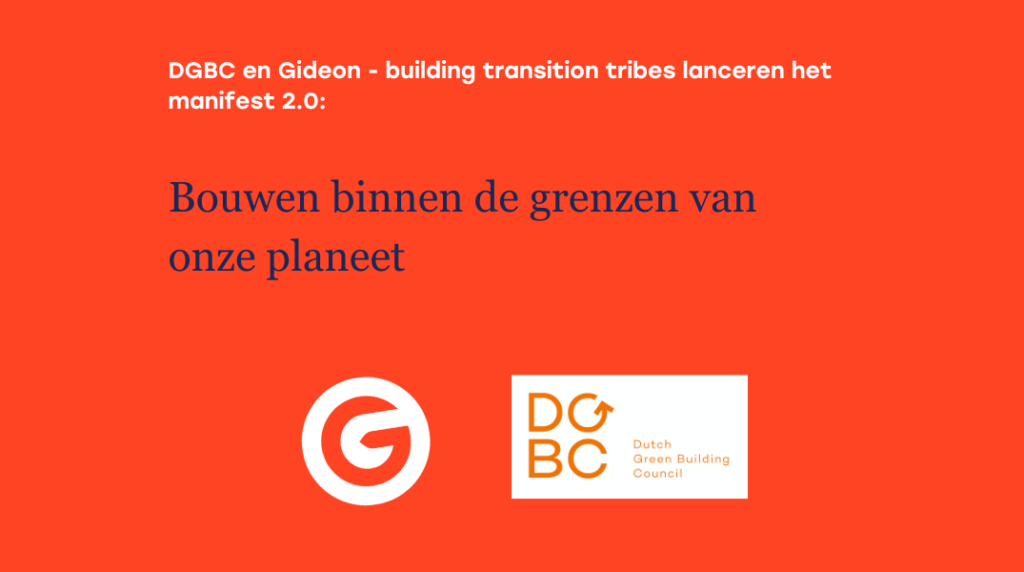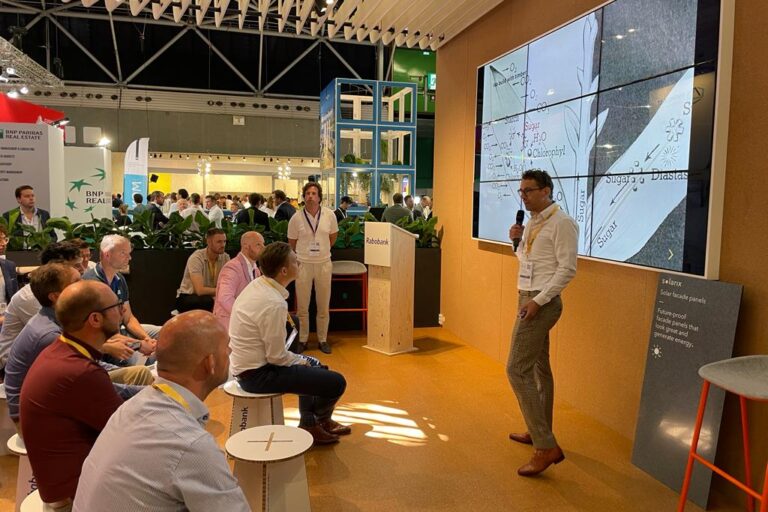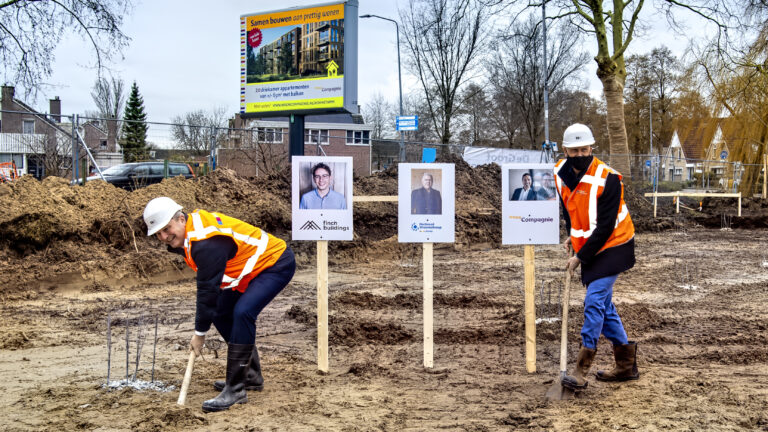
Sept. 5, 2022 Gideon launches - building transition tribes and DGBC jointly issued a new Manifesto: Building within the limits of our planet. The goal of this Manifesto is to structurally improve the environmental performance system and move toward a "carbon budget," a CO2-budget on the basis of which the construction sector can reduce its climate impact. At its launch on Sept. 5, the Manifesto was signed by 40 parties: from architects and consultants to builders and developers. We invite all parties in the construction industry to co-sign it!
"The trigger for this new Manifesto is the wait-and-see attitude of the central government," states Norbert Schotte, initiator of the earlier Manifesto A level playing field for a sustainable Netherlands. "We need to do more if we want to limit global climate change to a degree and a half, and industry leaders want that too."
Last week - after more than a year and a half - the research report on CO2-storage in biobased materials. "This report shows the ways in which we can achieve this CO2-storage can calculate. In terms of content we can agree with this, but the report does not answer the most important question: how and when will this be included in the MPG system? This effectively does not answer Minister Ollongren's commitment. That is frustrating."
In the new Manifesto, we call for three things:
- Introducing an "MPG-2," which focuses on environmental impacts in the production and construction phases.
- Improving the Environmental Performance System, using the sixteen focal points from our Gideon publication of May this year once again.
- Determining a carbon budget for the construction industry, to set a limit on total CO2-emissions from the sector and thus manage more effectively for sustainability.
The entire text of the Manifesto is behind this link to find. There you can also co-sign the Manifesto on behalf of your organization. Below we elaborate on the three points of the Manifesto.
1. Introduce an MPG-2
An additional "MPG-2" indicator that focuses solely on the impact during production and construction, allowing direct influence on the impact of the construction phase. There are two possibilities, each with its own advantages and disadvantages:
- an MPG-2 that only controls for CO2-emissions in Module A;
- an MPG-2 that controls for all environmental impacts in Module A.
In practice, CO2 accounts for about half the impact of Module A and there are many win-wins between the various environmental impacts. This additional indicator can be implemented immediately because it does not require additional information or calculations.
2. Improve the Environmental Performance System
The current Environmental Performance System is a good basis, but requires further development to steer more effectively. This includes improvement and expansion of the database, more mandatory transparency of products and better control of environmental performance in the realization phase. A future-proof environmental performance system requires better assurance of the public interest.
In order to drive the development of the system, earlier this year we launched from Gideon a Exploration released, containing sixteen points that require attention. These are summarized in a Opinion, with six recommendations to the central government. To date, we have not received a response as to which points will and will not be included in the further development - and why.
3. Determine a carbon budget for construction
A carbon budget for the construction industry, using the Paris Climate Agreement as a starting point, makes clear what emission room the construction industry still has left. This provides perspective on the pace needed to move toward a climate-neutral construction sector. Determining such a budget is seen as a political choice, however, because it touches on the distribution of emissions between sectors and is linked to European emission caps.
However, the total maximum Dutch emissions are a scientific (and political) fact. Scientific, because there is a maximum amount of CO2 that we can emit to prevent severe climate change. And politically, because Europe - with the Netherlands as part of it - has made commitments to its remaining emissions under the Paris Climate Agreement. These pledges will be strengthened at the upcoming climate summit in Sharm El-Sheikh (Nov. '22).
Initial calculations by Gideon suggest for the construction industry a carbon budget for of 60-80 Mton. This applies to the combination of new construction, renovation and transformation, to the combination of BenU and GWW.


